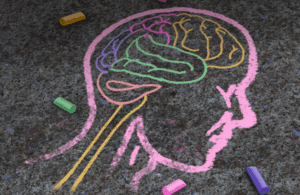A review says that new rights should be given to severely ill mental health patients detained in hospitals to stop abuse and neglect of this vulnerable group.

The 1983 Mental Health Act is outdated and is being misused as it does not protect patients’ rights like it should. The prime minister has said the injustices were unacceptable and promised action.
An 18-month review recommended several changes, including:
- new rights for patients to legally challenge their treatment
- more frequent opportunities to challenge detention
- legally binding advanced care plans- patients could express how they wanted to be treated if they were sectioned
- a requirement for doctors to record when and why they chose to ignore patient requests
- an end to police cells being used as a place of safety and less frequent use of police cars to transport patients
- the right to choose a “nominated person” to have control of a patient’s care if they were sectioned – now it automatically goes to their nearest relative
Professor Sir Simon Wessely who managed the review said it was time to bring the act up to date.
He added: “It was written when people with a mental health problem were something to be afraid of. But the way we think about mental health and illness has changed dramatically, so now they are more likely to be seen as people to be helped.
“The act needs to help them more – to make it easier for people to express their choices and preferences about how they want to be treated and harder for them to be ignored.”
How many people will this affect?
49,500 people were detained last year.
A 40% increase in mental health detention in the past 10 years.
4 times more black people will be detained than white
On average it costs £18,000 for detentions.
The Mental Health Act 1983 patients who are detained in hospitals, every year around 1.8 million patients receive mental health treatment however, only one in twenty will be treated in hospitals. Half of those are admitted voluntarily with nearly 50,000 detained against their will for their own protection.
Professor Sir Simon Wessely said there is no reason for the increase, but it is partly down to society becoming more “risk averse”.
As well as reducing numbers of detentions the review group would like to see a reduction in the use of compulsory treatment orders whereby patients are released from hospital under super vision. They say public safety will not be at risk.
Mental health charities are very supportive with the recommendations, Mind chief executive Paul Farmer said the act has been well outdated and many people have received poor treatment over the years. Mark Winstanley, from Rethink Mental Illness, said the charity had “long campaigned” for reform of the act.
Prime Minister Theresa May said the review would be used to make changes to the legislation.
She said: “The disparity in our mental health services is one of the burning injustices this country faces that we must put right,”.
“For decades, it has somehow been accepted that if you have a mental illness you will not receive the same access to treatment as if you have a physical ailment. Well, that is not acceptable.”
More articles on mental health: